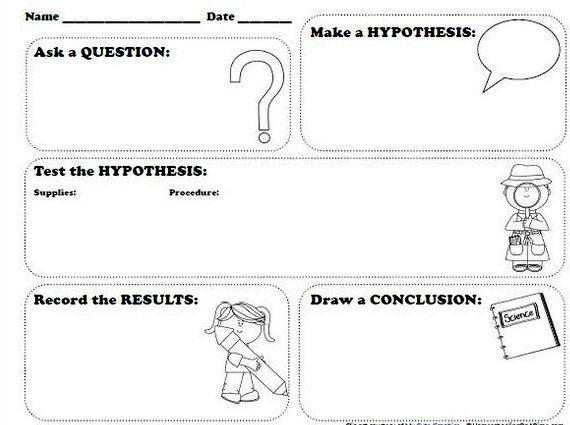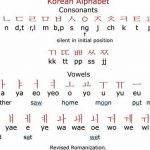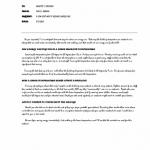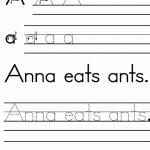You can give a real share of stock in America’s favorite companies and have the actual stock certificate framed with an engraved custom message to anyone in less than three minutes! Choose from brands like Disney, McDonald’s, Microsoft, Coca-Cola and 100’s more. Shareholder receives annual reports, dividend checks, and one vote at meetings.
Get One Share of Your Favorite Company!
What is a hypothesis?
No. A hypothesis is sometimes described as an educated guess. That’s not the same thing as a guess and not really a good description of a hypothesis either. Let’s try working through an example.
If you put an ice cube on a plate and place it on the table, what will happen? A very young child might guess that it will still be there in a couple of hours. Most people would agree with the hypothesis that:
An ice cube will melt in less than 30 minutes.
You could put sit and watch the ice cube melt and think you’ve proved a hypothesis. But you will have missed some important steps.
For a good science fair project you need to do quite a bit of research before any experimenting. Start by finding some information about how and why water melts. You could read a book, do a bit of Google searching, or even ask an expert. For our example, you could learn about how temperature and air pressure can change the state of water. Don’t forget that elevation above sea level changes air pressure too.
Now, using all your research, try to restate that hypothesis.
An ice cube will melt in less than 30 minutes in a room at sea level with a temperature of 20C or 68F.
But wait a minute. What is the ice made from? What if the ice cube was made from salt water, or you sprinkled salt on a regular ice cube?
Time for some more research. Would adding salt make a difference? Turns out it does. Would other chemicals change the melting time?
Using this new information, let’s try that hypothesis again.
An ice cube made with tap water will melt in less than 30 minutes in a room at sea level with a temperature of 20C or 68F.
Does that seem like an educated guess? No, it sounds like you are stating the obvious.
At this point, it is obvious only because of your research. You haven’t actually done the experiment. Now it’s time to run the experiment to support the hypothesis.
A hypothesis isn’t an educated guess. It is a tentative explanation for an observation, phenomenon, or scientific problem that can be tested by further investigation.
Once you do the experiment and find out if it supports the hypothesis, it becomes part of scientific theory.
Notes to Parents:
- Every parent must use their own judgment in choosing which activities are safe for their own children. While Science Kids at Home makes every effort to provide activity ideas that are safe and fun for children it is your responsibility to choose the activities that are safe in your own home.
- Science Kids at Home has checked the external web links on this page that we created. We believe these links provide interesting information that is appropriate for kids. However, the internet is a constantly changing place and these links may not work or the external web site may have changed. We also have no control over the “Ads by Google” links, but these should be related to kids science and crafts. You are responsible for supervising your own children. If you ever find a link that you feel is inappropriate, please let us know.

Send us a note if you have any questions.
Kids Crafts Privacy Policy 2016 Science Kids at Home, all rights reserved.
What is a Hypothesis?
A hypothesis is a tentative, testable answer to a scientific question. Once a scientist has a scientific question she is interested in, the scientist reads up to find out what is already known on the topic. Then she uses that information to form a tentative answer to her scientific question. Sometimes people refer to the tentative answer as “an educated guess.” Keep in mind, though, that the hypothesis also has to be testable since the next step is to do an experiment to determine whether or not the hypothesis is right!
A hypothesis leads to one or more predictions that can be tested by experimenting.
Predictions often take the shape of “If ____then ____” statements, but do not have to. Predictions should include both an independent variable (the factor you change in an experiment) and a dependent variable (the factor you observe or measure in an experiment). A single hypothesis can lead to multiple predictions, but generally, one or two predictions is enough to tackle for a science fair project.
Examples of Hypotheses and Predictions
How does the size of a dog affect how much food it eats?
Larger animals of the same species expend more energy than smaller animals of the same type. To get the energy their bodies need, the larger animals eat more food.
If I let a 70-pound dog and a 30-pound dog eat as much food as they want, then the 70-pound dog will eat more than the 30-pound dog.
Does fertilizer make a plant grow bigger?
Plants need many types of nutrients to grow. Fertilizer adds those nutrients to the soil, thus allowing plants to grow more.
If I add fertilizer to the soil of some tomato seedlings, but not others, then the seedlings that got fertilizer will grow taller and have more leaves than the non-fertilized ones.
Does an electric motor turn faster if you increase the current?
Electric motors work because they have electromagnets inside them, which push/pull on permanent magnets and make the motor spin. As more current flows through the motor’s electromagnet, the strength of the magnetic field increases, thus turning the motor faster.
If I increase the current supplied to an electric motor, then the RPMs (revolutions per minute) of the motor will increase.
Is a classroom noisier when the teacher leaves the room?
Teachers have rules about when to talk in the classroom. If they leave the classroom, the students feel free to break the rules and talk more, making the room nosier.
If I measure the noise level in a classroom when a teacher is in it and when she leaves the room, then I will see that the noise level is higher when my teacher is not in my classroom.
What if My Hypothesis is Wrong?
What happens if, at the end of your science project, you look at the data you have collected and you realize it does not support your hypothesis? First, do not panic! The point of a science project is not to prove your hypothesis right. The point is to understand more about how the natural world works. Or, as it is sometimes put, to find out the scientific truth. When scientists do an experiment, they very often have data that shows their starting hypothesis was wrong. Why? Well, the natural world is complexit takes a lot of experimenting to figure out how it worksand the more explanations you test, the closer you get to figuring out the truth. For scientists, disproving a hypothesis still means they gained important information, and they can use that information to make their next hypothesis even better. In a science fair setting, judges can be just as impressed by projects that start out with a faulty hypothesis; what matters more is whether you understood your science fair project, had a well-controlled experiment, and have ideas about what you would do next to improve your project if you had more time. You can read more about a science fair judge’s view on disproving your hypothesis here.
It is worth noting, scientists never talk about their hypothesis being “right” or “wrong.” Instead, they say that their data “supports” or “does not support” their hypothesis. This goes back to the point that nature is complexso complex that it takes more than a single experiment to figure it all out because a single experiment could give you misleading data. For example, let us say that you hypothesize that earthworms do not exist in places that have very cold winters because it is too cold for them to survive. You then predict that you will find earthworms in the dirt in Florida, which has warm winters, but not Alaska, which has cold winters. When you go and dig a 3-foot by 3-foot-wide and 1-foot-deep hole in the dirt in those two states, you discover Floridian earthworms, but not Alaskan ones. So, was your hypothesis right? Well, your data “supported” your hypothesis, but your experiment did not cover that much ground. Can you really be sure there are no earthworms in Alaska? No. Which is why scientists only support (or not) their hypothesis with data, rather than proving them. And for the curious, yes there are earthworms in Alaska.
Hypothesis Checklist
What Makes a Good Hypothesis?




 By myself tiffany hangul writing
By myself tiffany hangul writing Writing a memo to your boss sample
Writing a memo to your boss sample Abcd model of writing objectives using blooms taxonomy
Abcd model of writing objectives using blooms taxonomy Print your own writing worksheets
Print your own writing worksheets Hbr 10 must reads on managing yourself summary writing
Hbr 10 must reads on managing yourself summary writing






